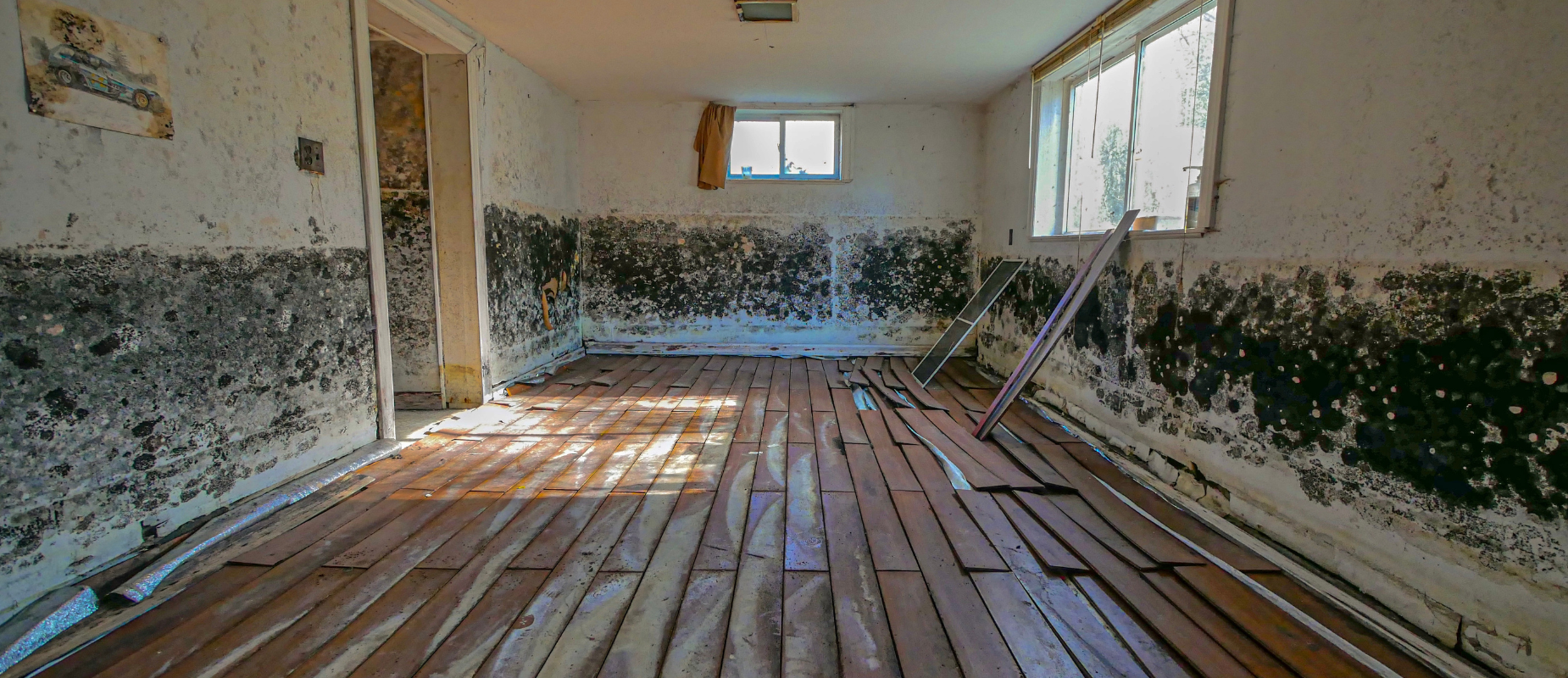
Understanding Mold Disclosure Laws in Tennessee
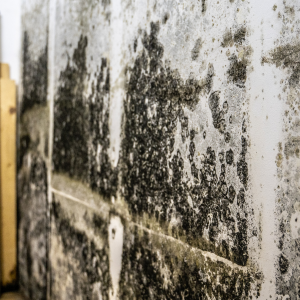
Tennessee’s Legal Requirements for Selling a House with Mold: A Comprehensive Guide
When selling a house in Tennessee, you must follow the rules about mold disclosure. Sellers need to tell buyers if there’s any mold in the home. Real estate experts help make sure these disclosures are made. This keeps both sellers and buyers safe from disputes. Following these rules prevents legal issues and builds trust.
Penalties for Non-Disclosure of Mold Problems in Tennessee
If a seller does not disclose mold problems, there can be serious consequences. In Tennessee, not telling about mold can lead to fines or court action against the seller. This affects the seller’s finances and reputation. Buyers should get legal advice if they think there’s been non-disclosure. Understanding these risks is important for all involved in a property deal.
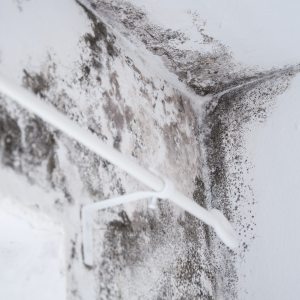
The Importance of Professional Mold Inspections Before Listing Your Tennessee Home
Before you list your home in Tennessee, getting a professional mold inspection is wise. These inspections provide an expert view of the property’s condition. They ensure transparency and meet real estate laws. Experts give detailed reports that show any mold issues, helping sellers fix problems early. This gives buyers confidence. A good inspection makes the transaction smoother and avoids disputes later.
Who Bears the Cost of Mold Remediation in Tennessee? Seller vs. Buyer Responsibilities
In Tennessee, who pays for mold cleanup can be negotiated between the seller and the buyer. Often, it depends on what they agree on during the sale. Sometimes, sellers pay to make the home more attractive, while buyers might ask for a lower price and take care of remediation themselves. It’s important to have clear terms in the contract to avoid financial disagreements. Understanding these roles helps both parties in the property deal.
Preparing Your Mold-Affected House for Sale in Tennessee
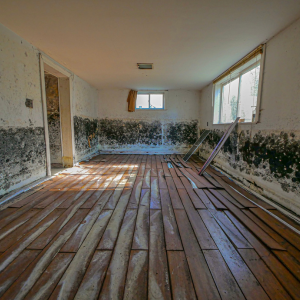
Effective Mold Mitigation Strategies Before Listing Your Property
Selling a house with mold in Tennessee can be tough, but fixing these problems is important. Here are some easy steps to help:
- Professional Mold Remediation: Hiring experts to remove mold is safe and stops future health problems. They have the right tools and knowledge.
- Home Inspection and Repair: Check your home completely to find and fix any moldy areas. Frequent checks can stop mold from coming back.
- Mold Prevention Tips: Use dehumidifiers, fix leaks quickly, and let air flow in wet places. These steps stop mold growth and keep new mold away.
Doing these things makes your home safer and nicer for buyers looking at real estate in Tennessee.
DIY Mold Remediation vs. Hiring Professionals: A Cost-Benefit Analysis for Tennessee Homeowners
If you live in Tennessee and want to clean mold yourself or hire someone, think about these things:
- DIY Mold Remediation:
- Pros: It costs less money upfront, and you can start right away.
- Cons: Less knowledge and tools could mean mold isn’t fully removed, which can be risky.
- Hiring Professionals:
- Pros: Experts know how to remove mold, lowering risks safely. They are certified to do a good job.
- Cons: It costs more, but it’s usually better for big mold problems.
Think about how much mold there is and your budget to decide what’s best for safety and spending.
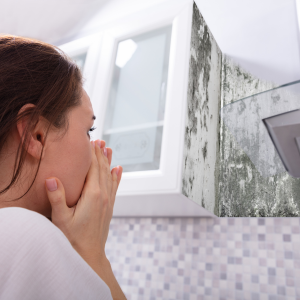
Addressing Buyer Concerns About Mold: Transparency and Proactive Communication
When selling a house, talk openly about any mold to ease buyer worries:
- Transparency: Tell buyers if there was mold and what you did to fix it. This helps build trust.
- Proactive Communication: Give updates about mold treatments or home inspections. This helps calm buyer concerns and makes deals go better.
- Legal and Negotiation Aspects: Know the mold disclosure laws in Tennessee to handle questions and negotiations well.
Being open and honest in real estate deals helps ease buyer fears about mold.
Strategic Photography to Minimize the Visual Impact of Mold
Good photos can make your home look better, even if there’s mold:
- Highlight Clean Areas: Show the best parts of your home that don’t have mold. Bright photos can make your home look nice.
- Creative Angles: Take pictures from spots that hide mold, showing rooms nicely.
- Enhance Curb Appeal: Focus on outside shots that make your house look inviting, keeping attention away from inside mold issues.
Using smart photography helps get buyers interested and manages how mold looks in pictures.
The Impact of Mold on Your House’s Sale Price in Tennessee
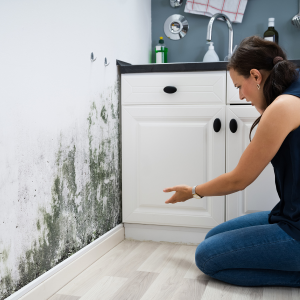
How Mold Issues Affect Property Values in the Tennessee Real Estate Market
Mold can lower your house’s value in Tennessee’s real estate market. Buyers may worry about health risks and repair costs when they hear about mold issues. In Tennessee, high humidity makes mold a common problem. Mold in your home might make it less appealing, lowering its sale price.
Factors Influencing Price Reductions Due to Mold: Location, Severity, and Remediation
Several factors affect how much mold reduces your property’s value:
- Location: In humid Tennessee areas, mold is common. Buyers may still expect lower prices if a home has mold issues.
- Severity: Extensive mold damage leads to bigger price cuts. Minor mold problems require smaller price adjustments.
- Remediation Costs: Expensive mold treatment can cause significant price reductions. Buyers will consider the cost of removing mold when negotiating.
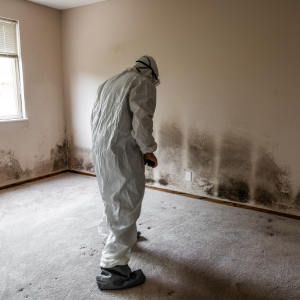
Negotiating a Fair Price with Potential Buyers: Strategies for Transparent Transactions
Good communication is key when selling a home with mold in Tennessee. Here are some strategies:
- Be Transparent: Let buyers know about mold issues right away. Being honest builds trust.
- Offer Solutions: Share estimates from well-known mold remediation companies. This shows you are considering solutions.
- Adjust Pricing Fairly: Lower your asking price to account for mold repairs. This shows you want a fair transaction.
Market Trends for Homes with Mold Problems in Specific Tennessee Areas
Different parts of Tennessee show unique trends for homes with mold:
- Urban Areas: Cities like Nashville may have higher mold remediation costs, affecting property values more.
- Rural Areas: In less populated areas, buyers might be okay with minor mold issues, especially if they are common.
- Growing Regions: Developing regions might have newer homes with better mold prevention, which affects market views and property values differently.
Knowing these trends helps set realistic expectations when selling a mold-affected house in Tennessee.
Marketing Your Tennessee Home with Mold Issues Effectively
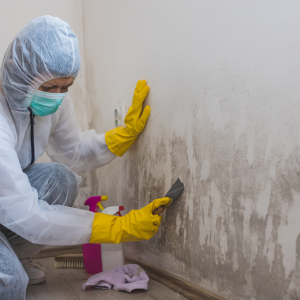
Presenting Mold Issues Honestly and Transparently in Your Listing Description
When selling a home in Tennessee, you need to be honest about mold issues. Include full details in your property listing. Buyers should know if there is any mold so they are aware of safety concerns and local rules.
- Full Disclosure: Clearly explain where the mold is and what you’ve done about it.
- Transparency: Tell buyers about health risks linked to mold.
- Regulations: Let buyers know about Tennessee’s rules for mold in real estate deals.
Being open builds trust and keeps legal problems away.
Choosing the Right Marketing Channels to Reach Potential Buyers in Tennessee
Picking the right ways to market your home is important for finding buyers willing to look past mold problems. Here’s how:
- Real Estate Experts: Partner with agents who know how to sell homes with mold. They can help show off your home’s good points despite the mold.
- Advertising: Aim ads at those looking for homes that need fixing.
- Communication Channels: Use social media and online real estate sites to talk directly to potential buyers in Tennessee.
Using the right methods helps you find serious buyers who understand the home’s condition.
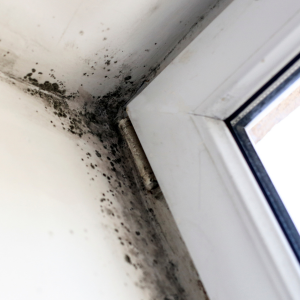
Attracting Buyers Willing to Consider Properties with Mold-Related Challenges
To draw in buyers for a house with mold, use these strategies:
- Negotiation: Be ready to talk about price changes due to the mold. This could include a lower property value or paying for mold cleanup.
- Consideration: Highlight any price cuts because of mold, suggesting potential value growth once fixed.
- Disclosure: Share clear insurance info about mold, which helps buyers feel confident.
These actions make sure buyers know all they need to do and feel safe in deciding.
Highlighting Positive Aspects to Offset the Mold Issue: Focus on Strengths and Value
Mold can be a downside, but talking up your home’s good features can help:
- Property Attributes: Point out great features like a big space or a good location.
- Market Benefits: Mention why the current market makes your home a good deal, even with mold.
- Advantages: Show off upgrades or new parts of the house that add value.
By focusing on these positives, you can show the future benefits and worth of your Tennessee home.
For more tips on selling challenging properties, check out buyerhouse to see how we can help.
Best Practices for Selling a House with Mold Issues in Tennessee

Working Effectively with Real Estate Experts: Full Disclosure and Open Communication
Selling a house with mold can be tough. Real estate experts play a key role in this process. Here’s how to work well with them:
- Full Disclosure: Be honest about mold issues. This builds trust with your real estate professional and buyers.
- Open Communication: Share inspection reports and details with your real estate professional.
- Collaborative Approach: Work together to market the home, showing how you’ve addressed the mold.
Essential Documentation for Full Disclosure: Protecting Yourself Legally
To stay safe legally while selling your home, having the right paperwork is crucial. Consider these steps:
- Mold Inspection Reports: These show full transparency to potential buyers.
- Legal Advice from an Attorney: Talk to a lawyer to follow Tennessee’s real estate rules.
- Disclosure Forms: Fill these out correctly to protect yourself from future issues.
Having all the right documents not only meets legal standards but also shows buyers that you are transparent.
Handling Buyer Backouts Due to Mold Concerns: Strategies for Mitigation
If buyers back out because of mold worries, it can be frustrating. Here’s what you can do:
- Understanding Buyer Concerns: Listen to what buyers are worried about.
- Mitigation Strategies: Offer to pay for mold fixes or give credits to ease their concerns.
- Transparent Communication: Explain the steps taken to reduce mold risks.
These steps can help keep the sale moving forward and lower the chance of losing the deal.
Anticipating and Addressing Common Buyer Questions About Mold
Buyers will likely have questions about mold. It’s important to answer them:
- Common Questions: They may ask about the extent of the mold, water damage, and repairs.
- Providing Information: Give your real estate expert detailed reports to share.
- Ensuring Transparency: Being open helps ease concerns and builds trust with buyers.
By preparing for these questions, you can help make the sale process smoother.
FAQs:
How Can I Sell My House With Mold in Tennessee?
Selling a house with mold means you need to tell buyers about it. Get a mold inspection from a professional and fix serious problems first. You could work with a real estate expert who knows how to sell homes with mold. Make sure the house is clean and has good airflow to help attract buyers.
What Are the Legal Responsibilities of Selling a House With Mold in Kingsport, TN?
In Kingsport, TN, you must tell buyers if you know about mold in your house. Talk to a lawyer to make sure you’re following state laws. If you don’t tell them, it could cause legal trouble or lower the sale price.
How Can Homeowners Finance Mold Remediation?
Homeowners can pay for mold cleanup using home equity loans or personal loans from banks. Some insurance policies might cover mold repairs, so check with your insurance company for help.
What Precautions Should I Take to Prevent Mold in Crawl Spaces?
To stop mold in crawlspaces, make sure there’s good airflow. Use dehumidifiers to reduce moisture levels. Regular inspections and fixing any signs of mold quickly will help prevent big problems.
Is a Flat Fee MLS a Good Option for Selling a House With Mold Issues?
A flat fee MLS can help you list your house without high realtor fees. This is useful if you can manage negotiations and deals yourself. If unsure, check with a real estate expert.
How Does Mold Affect Property Values in Tennessee?
Mold can lower property values because of repair costs and stigma. Buyers see mold as a risk, and fixing it can cut into your profit. Showing buyers what fixes have been done might help ease their concerns.
Can Mold Problems Lead to Foreclosure Risks?
Yes, mold problems can lead to foreclosure if they hurt the home’s value. It might also make it hard to refinance or sell. Fixing these issues quickly can help avoid higher costs later.
What Should Be Included in a Mold Remediation Checklist?
A mold remediation checklist should have areas that need checking, types of mold, and how to treat them. It should also include testing after remediation. Hire certified inspectors for a thorough job and to meet health standards.
Key Insights
- Mold issues in Tennessee homes can be different in cities like Chattanooga, Memphis, and Nashville.
- Fixing mold can help increase property values and make selling a house easier.
- Home inspections for mold are important to find problems early and ensure honesty during real estate deals.
- Mold removal in Tennessee should be done by certified pros to keep it safe and follow local rules.
- Selling a home with mold means getting legal advice, inspection reports, and proper papers to satisfy buyers.
- Properties with mold in Tennessee can attract buyers with smart marketing and pricing.
- Buyers and realtors must be aware of the health risks and laws about moldy homes, including the need for good ventilation.
- Real estate transactions with moldy houses need an understanding of escrow, negotiation, and cleanup costs.
- Regular checks help homeowners stop mold growth and keep good indoor air quality.
- Investors should think about expenses and possible returns after fixing moldy properties.
- Professional home inspections can find moisture and mold issues early, helping in property management.
- When selling a house with water damage or mold, consider market trends, buyer safety, and health standards.
- Good communication with lawyers, realtors, and buyers is important when dealing with mold issues in the housing market.
- Mold problems can affect financing and insurance, so detailed reports are needed to find solutions.
- Safety steps, better ventilation, and mold prevention are key for landlords and homeowners.
- Understanding Tennessee’s mold liability laws and penalties is important for compliance.
This information applies to Tennessee and its cities, including Arlington, Memphis, Somerville, and Munford. For more details, please call us at (901) 979-9929 or visit our website at buyerhouse.

